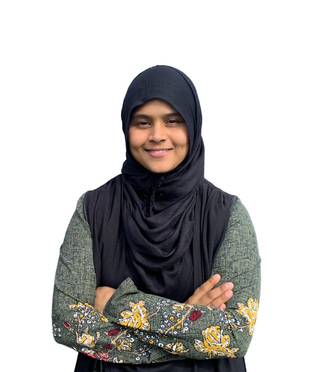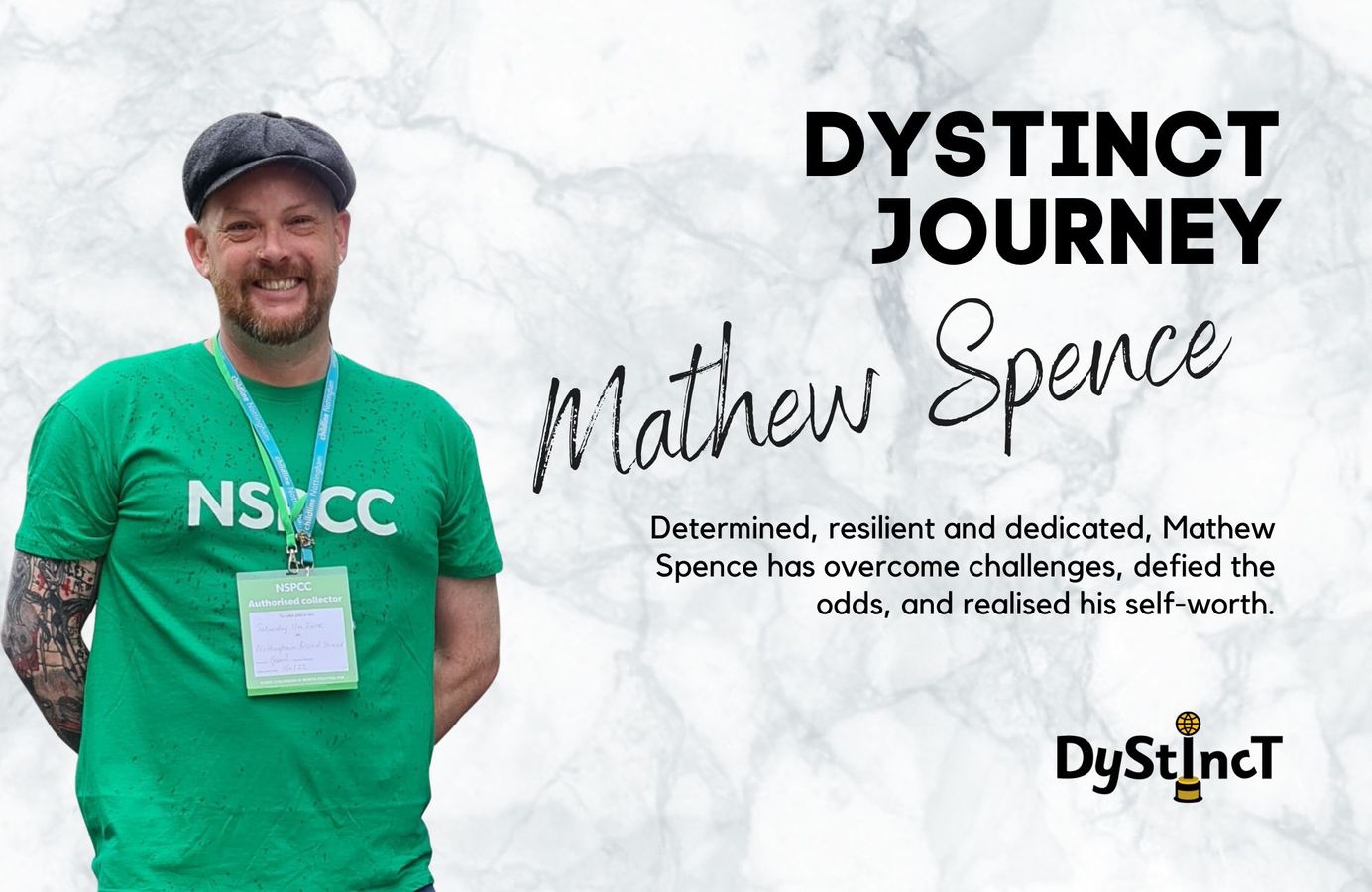
Issue 12: Dystinct Journey of Justine Vilgrain
The story of how Justine Vilgrain, a successful creative strategist from Paris, France, who had a turbulent childhood due to the lack of support from the school system in France, is now working to make people with learning difficulties feel accepted.
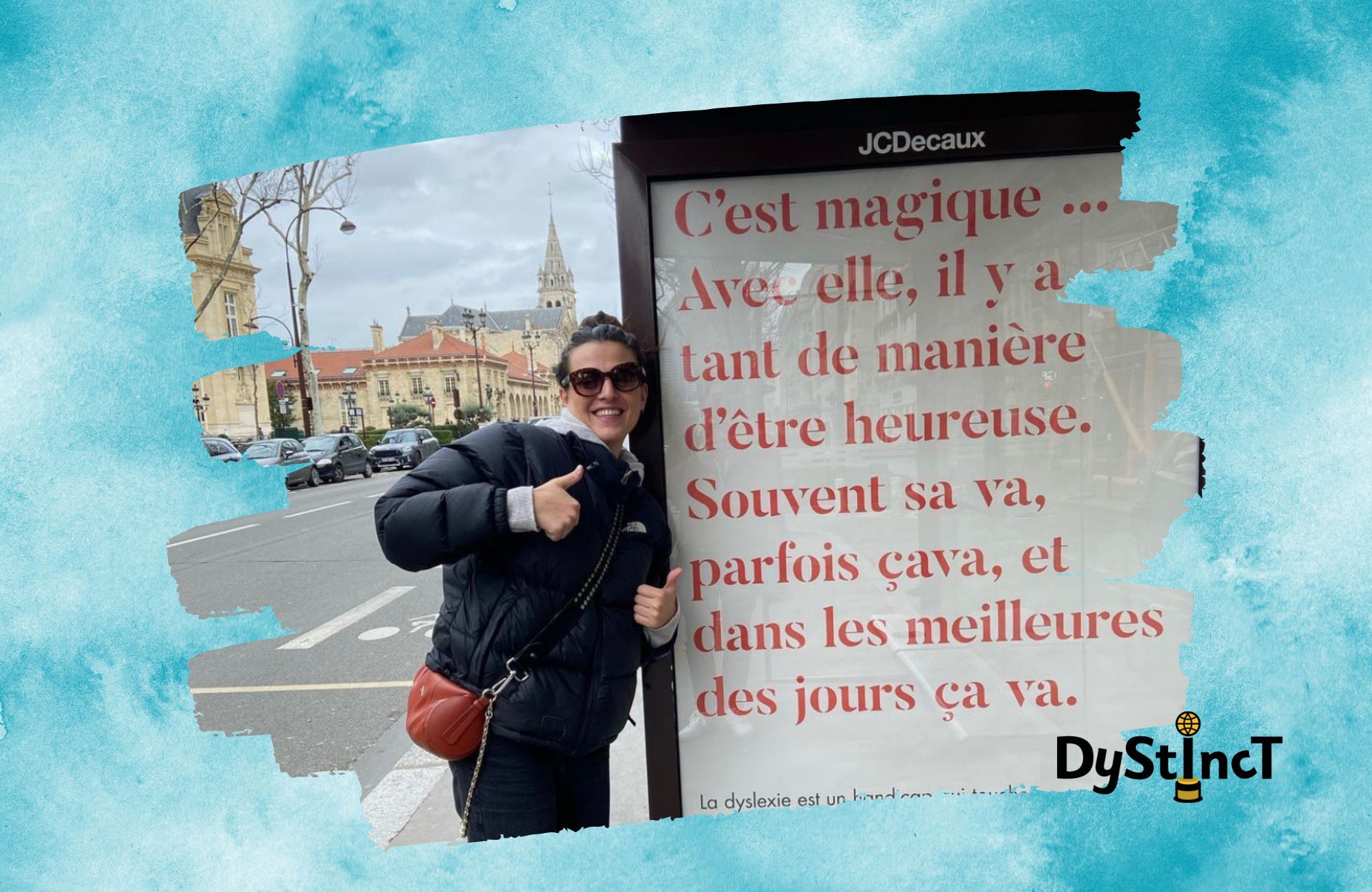
Justine Vilgrain was a turbulent child, constantly getting into trouble with her teachers and parents because of her dyslexia and undiagnosed ADHD. On her own admission, she got kicked out of two schools in Paris, France, before being shipped off to a boarding school in the UK at 14 years.

Justine believes that the French education system was not adapted to cater to dyslexic students and that her move to London was a blessing, although she didn't realise it back then. "As soon as reading and writing started at school, everything became problematic. My teacher realised I was dyslexic and told my parents. I got diagnosed immediately at six years, but the teachers still thought I was lazy. Because of my ADHD, sitting still in a chair was not my strong suit. I was noisy, had bad grades and a bad attitude, so I wasn't exactly the teacher's favourite student."
Justine recalls that once, a teacher threw her exam paper at her and said, "I'm not even going to read this. There are too many spelling mistakes. This is a zero." Another time, a teacher made her stand up in class and made everybody clap because Justine scored 0.5 on a writing test. "They always considered it laziness and not like 'Oh, she has a handicap; I need to do something different to help her. 'There is such a history to the French language that sort of makes everybody picky. If you make a mistake, it's almost like you are insulting the French language."
Justine shares that she had a dyslexic friend at school, and they would get back at the teacher in their own childlike manner. "My dyslexic friend and I were seated together at school in France. We always got zeros, and sometimes the teacher would mark our papers with negative scores, like minus 20 or minus 30. So, we decided, 'you know what? We are always going to get zeros, so why not make his life harder?' We would have a competition to see who scored worst, and we'd make mistakes on purpose."
By 14, Justine's attitude and foul mood were getting too difficult for her teachers and parents to manage. So, her parents decided to send her to a boarding school in the UK."I was happy to be sent away. My younger sister was reading big books and being praised for it. My home life got difficult. I was angry and acting out. My mum was frustrated with my grades, and my dad was mad at me because I was being rude to my teachers.
I was angry and acting out.
School seemed more supportive of her learning differences in the UK. She had accommodations put in place in the classroom and curriculum rather than having to work with a therapist after school like she had to do in France. She found the teachers more accommodating of her differences as well. However, Justine found the teachers in the UK stricter compared to the teachers back home, so it took some time for her to adjust to her new life. So, she had to move schools twice before she found her footing at the third boarding school.
"My third boarding school, Millfield, specialised in sports and was dyslexia aware. I got to do a lot of sports which helped with my hyperactivity. I had a lot of support academically as well. I was in the A-level, and I took photography, video, media, business and French for English students. I was allocated a scribe and a room for myself, so it wasn't noisy and given extra time in exams. I had great grades in media and photography, with lots of As. I began performing well. I began to understand the positivity of being dyslexic and decided to not worry about others and just keep going as who I am," shares Justine.
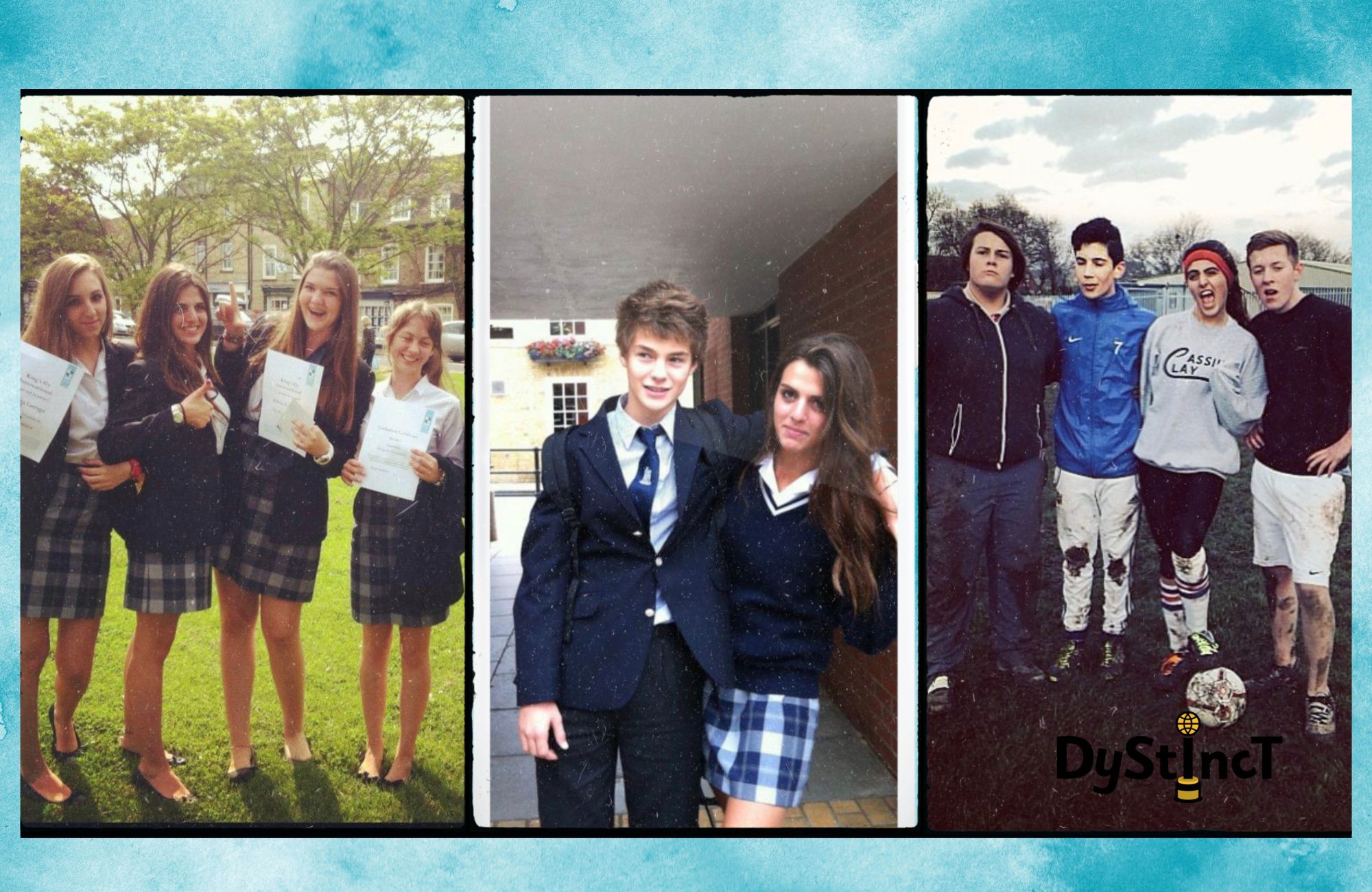
Justine moved to the USA after finishing school to pursue a degree in Integrated Design. She did exceedingly well and was even honoured by the university for her grades. She believes that studying subjects that she was interested in and genuinely wanted to learn made all the difference in her performance. The vibe in the USA was welcoming, and it almost felt like they celebrated people with different thinking shares Justine. "In my student statement, I mentioned that I was dyslexic, and they literally looked at me like I was a genius. In France, they saw me like I was stupid. In the UK, they said, 'Ok, you have an issue, we will help you out and then in the USA, they were like, 'Wow! You are going to kill the world.' That is when I realised that there definitely was an issue with the system in France."
In 2018, Justine graduated and, together with a friend, Patricia Gloum, set up a creative studio, Braw Haus specialising in digital arts and experimental commercials, dabbling in Web3, blockchain and all the latest technologies. Justine had established herself as a successful concepteur, but she was aware that her business partner was a little frustrated with having to constantly help out with proofreading formal communications and presentations. An idea was brewing in her head to overcome the stigma of spelling errors. She thought, "What if I can convey that I'm dyslexic, so people pay attention to the content of my email or presentation rather than my spelling." She sent a letter to the French President Emmanuel Macron detailing her journey and how people like her shouldn't have to leave a developed country like France for lack of support and acceptance. She pitched her idea of creating a digital stamp for use at businesses and schools to indicate that the sender of the email was dyslexic. She never heard back from President Macron, so she decided that we are never better served than through ourselves and went about implementing the idea herself. "I had a graphic designer who designed the website and logo design the Certified Dyslexic stamp, and I started using it on my own emails." Meanwhile, Covid hit, and issues with her visa saw her move back home to Paris in 2020, and she set up another business, The NFT factory, in 2022.
Her Certified Dyslexic stamp was working for her, and she was receiving lots of positive feedback from fellow dyslexic creatives working in her field. However, Justine noticed how the same issues that plagued her education over ten years ago still prevailed in schools and the workforce. Justine then thought that if she was the only one using the stamp, then it wasn't helping others. So, she decided to get her idea more attention so it could go mainstream. "I started reaching out to the press, but initially, I didn't get any response. My intern made me an excel sheet of journalists. As I went through the list, I noticed that a girl I knew from primary school was listed on the excel sheet. I just reached out to her. She works for a big media firm in France called Konbini. I said, 'Hey, this is my story,' and she was like, 'It's dope! Let's do it!' From there, it was a snowball of media firms wanting to feature my story and idea. I think being dyslexic is a positive thing, and I could bring positivity and a solution to the struggle that was previously missing in our society."
I received a lot of messages from people telling me, 'I thought I was alone.'
As her journey and idea were being featured in the media, Vincent Micheron, a dyslexic creative from France, reached out to her and together, they worked on a campaign to spread awareness for learning difficulties incorporating a bit of humour. In 2021, 500 billboards were set up across buses and public spaces for one week in France, which got people talking about learning difficulties. "I received a lot of messages from people telling me, 'I thought I was alone.' 'Thank you so much for sharing that you're dyslexic.' There was like a lot of movement with people wanting to accept themselves who were previously shut down on their own and frustrated."
Justine believes that awareness of learning difficulties in teacher training is lacking in France. She was acquainted with an individual who was training to be a teacher, and all he had was 2 hours of training on disabilities in his teacher training course. "How can you cover all disabilities in just 2 hours? They see it as just 5% of the population of one student in a class. That one student could be the next Einstein, but because of a lack of understanding, this child might get pulled down their entire life."
Following the success of her campaign, Amazon has been in touch with her to deliver an intervention for their employees at their Luxembourg headquarters to raise awareness and create a dyslexia-friendly workplace. Justine continues to spread awareness and promote Certified Dyslexic. She feels like she has no bitterness looking back at her past, as whatever happened back then helped shape who she is today.
Justine Vilgrain
certifieddyslexic.com | Facebook | Instagram | LinkedIn
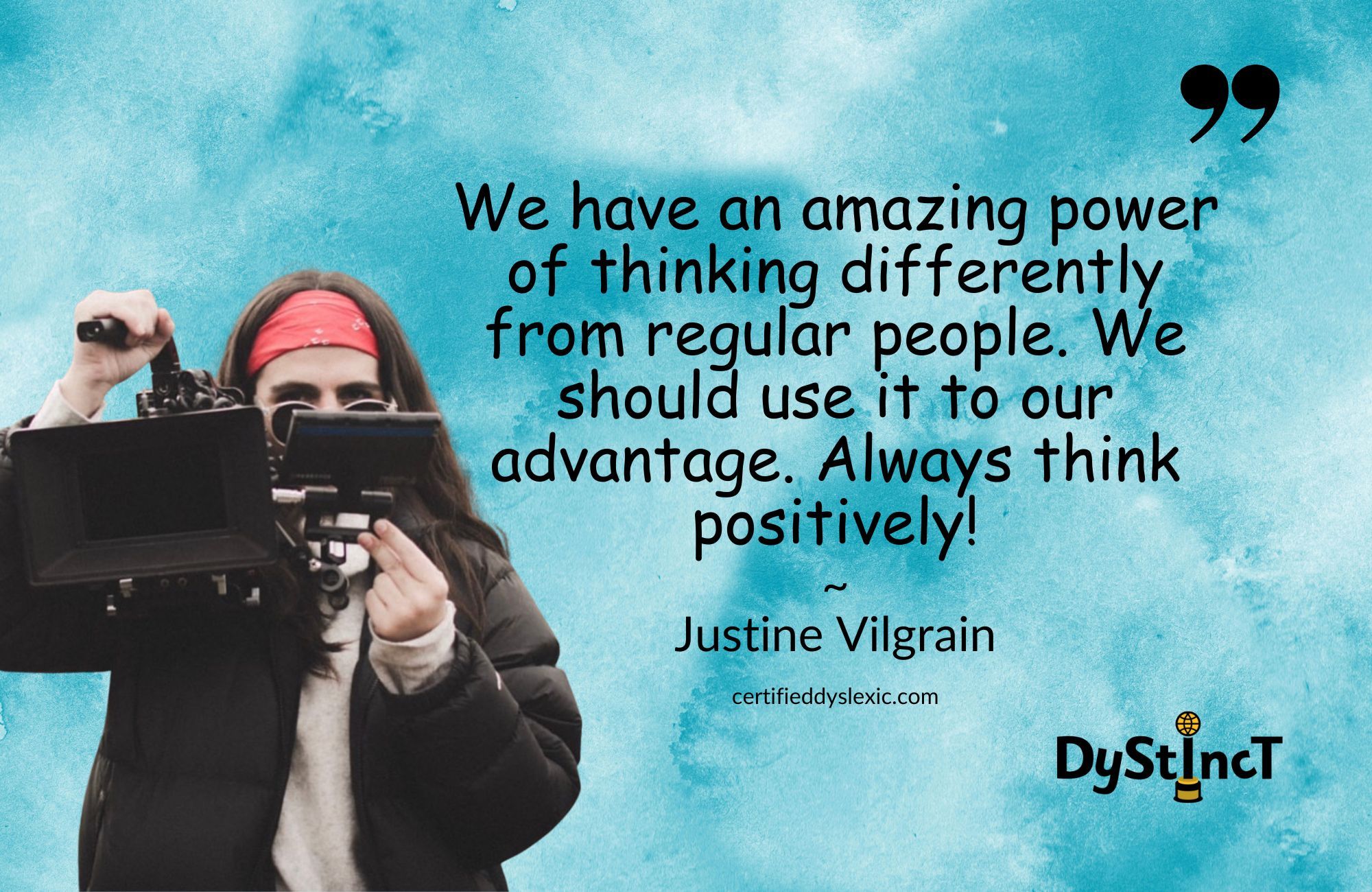
Extracts from Dystinct Magazine
Extracts from Dystinct Magazine








